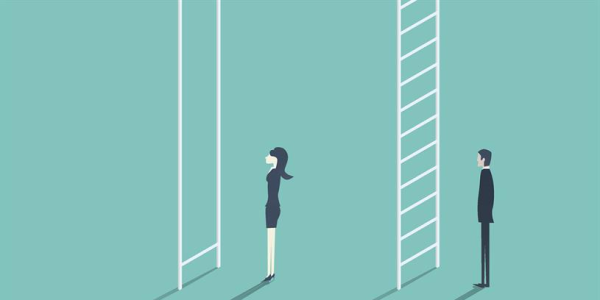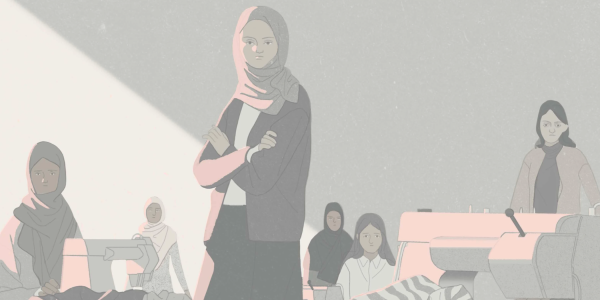“Real men” Don’t Report
While historically women have borne the brunt of sexual harassment in the workplace, it's important to recognize that a significant percentage of men also experience this issue. The results of a survey conducted by the Economic Times, which consisted of 527 individuals from seven major cities in India - Bangalore, Chennai, Delhi, Hyderabad, Kolkata, Mumbai, and Pune - revealed that 19% of respondents reported experiencing some form of sexual harassment at work. The highest percentage of reported harassment was in Bangalore at 51%, followed by Delhi and Hyderabad at 31% and 28%, respectively. The results also showed that 38% of participants across all seven cities believe that men and women are equally vulnerable to sexual harassment in today’s work environment.
It's worth noting that incidents of male victimization often go unreported, largely due to social attitudes and stereotypes about men and masculinity, as well as the victims' own beliefs. Hence, the figures quoted may just be the tip of the iceberg.
So why are men less likely to report sexual harassment? This can be attributed to pervasive gender stereotypes and societal norms, which often paint men as the aggressors rather than the targets of harassment. There's also the notion that "real men" should embrace sexual advances from women. Similar to their female counterparts, male victims also fear retaliation if they report the harassment, and on top of that, their own sexuality may be unfairly scrutinized. It's important to acknowledge that men who are victims of sexual harassment experience the same emotional turmoil as their female counterparts, including feelings of humiliation, anxiety, depression, and helplessness, which can sometimes lead to drastic scenarios such as suicide.
Anti-Sexual Harassment Laws for Men
The current laws in India that address sexual harassment in the workplace, such as the PoSH Act, only offer protection to female victims and are not gender-neutral. This means that men who experience sexual harassment are left without legal recourse and often without emotional support from friends and loved ones, who may dismiss their experiences. In contrast, the regulations in the US, as set by the US Equal Employment Opportunity Commission, take a gender-neutral approach to sexual harassment in the workplace.
The lack of legal protection for male victims of sexual harassment can lead to a range of issues. Many male victims fear that a female perpetrator could misuse the laws and falsely accuse them of sexual harassment, which can lead to an unwillingness to report such incidents. Additionally, without legal protection, male victims of sexual harassment may struggle to access resources such as counseling or therapy, further exacerbating the emotional toll of their experiences.
Employer Takeaway
Sexual Harassment is a serious issue that can affect any employee, regardless of their gender or orientation. Employers have a responsibility to create a safe and respectful work environment, and this includes protecting male employees from Sexual Harassment.
To achieve this, it is important to provide PoSH training to male managers and supervisors, including topics on gender sensitivity and complaint procedures. This will enable them to handle Harassment cases appropriately and create a safe environment for all employees.
Organizations should adopt a gender-neutral Anti-Sexual Harassment Policy that allows all employees to report incidents and seek assistance. Regular training on the issue should be provided to create awareness and sensitivity around Sexual Harassment. Employees should be made aware of reporting mechanisms and understand that Sexual Harassment is a crime against individuals, regardless of their gender or position.
By taking these steps, organizations can prevent Sexual Harassment, create a culture of zero tolerance, and ensure that all employees feel safe and respected in the workplace.
Creating Ethical Workplaces with Rainmaker's Unique E-Learning Modules and Tailored Training Solutions
At Rainmaker, we're committed to promoting ethical workplaces throughout the country. Our key differentiator is our cutting-edge e-learning modules, which feature real-life scenarios and actors to ensure maximum engagement and retention. These modules can be fully customized to meet your organization's specific needs. We also offer training for Internal Committee Members and other personnel. To learn more about our comprehensive range of services, reach out to us.
Author: Sagnik Mukherjee, Legal Associate, Rainmaker Directions and Contributions: Akanksha Arora, AVP-Legal, Rainmaker
Disclaimer : No information contained in this website may be reproduced, transmitted, or copied (other than for the purposes of fair dealing, as defined in the Copyright Act, 1957) without the express written permission of Rainmaker Online Training Solutions Pvt. Ltd.










